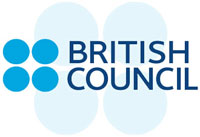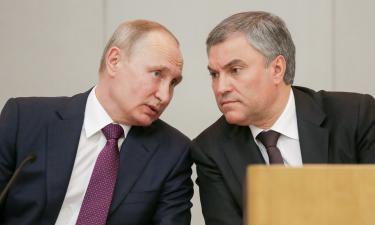Russia's decision to ban British Council drives Gordon Brown mad
The already strained British-Russian relations can become even more unfriendly. The decision of the Russian authorities to suspend the work of all British Council regional branches starting from January 1, 2008 has caused a negative reaction on the part of the United Kingdom. "This is totally unacceptable action that has been taken, or being mooted, by the Russian Government," British Prime Minister Gordon Brown said. "I think it’s very important to recognise that the British Council is doing valuable work in Russia. We wish this action to be desisted from immediately. We are making our views known to the Russian Government," he added.

The Foreign Secretary of Great Britain David Miliband noted work of the British Council is forbidden only in two countries – Iran and Myanmar.
“The cessation of activities of the British Council involves no political reasons and is not connected with British-Russian disagreement,” a statement from the Russian Ministry of Foreign Affairs said. The head of the Ministry, Sergey Lavrov, explained that the British Council was opened in Moscow in the middle of the 1990s, whereupon the British Embassy established 15 Council departments all over the country without informing Russian colleagues. Lavrov also pointed out that these offices were illegal, and that was the only reason that forced the Russian authorities to stop their work.
The statement was indirectly disproved by Mikhail Kamygin, an official spokesman for Russia’s Ministry of Foreign Affairs. He said that the activity of the council should have been regulated by a certain agreement, but “unfriendly actions taken by Great Britain against Russia in July, frustrated all our plans to draw up this document.”
As it is known, Great Britain deported four Russian diplomats in response to the refusal of the Russian part to extradite Andrei Lugovoy last summer. Lugovoy is a suspect on Alexander Litvinenko’s murder case. In addition, Britain promised to change the diplomatic visa procedure with Russia.
The British Council itself declared that the work of its departments would be continued. “The British Council activity in St.Petersburg and other Russian regions meets the requirements of international and Russian laws. So, there are no plausible reasons for the British Council to stop its activities in Russia,” said Natalya Minchenko, a PR manager of the Moscow department of the British Council.
A comment from the Russian authorities followed immediately. “All statements to ignore the decision to ban the activities of the British Council in Russia are provocative and can only aggravate the situation further,” a high-ranking official from Russia’s Ministry of Foreign Affairs said. The official added that it does no credit to the representatives of the law-abiding country except if they are inadequately informed about the real state of the case. However, the British side should be aware of the fact that the British Council has no legal foundation for its activities in Russia.
The British Council is an international non-government organization which is concerned with informational, library and educational services, and the English language teaching in particular. The Council has its departments in 100 countries all over the world. It has been working in Russia since 1992. The first difficulties started to appear in 2004 when Russia’s Ministry of Foreign Affairs refused to recognize the diplomatic status of the organization.
Translated by Ksenia Sedyakina
Pravda.ru
Subscribe to Pravda.Ru Telegram channel, Facebook, RSS!





